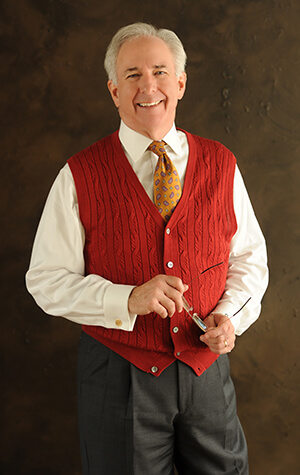As many of you know, I am a polio survivor. When that insult showed up at 13 months of age, my life changed, and that of my family. I was one of the lucky ones; only my left leg bears witness to its after-effects. Not even imagined at that moment, polio’s after-effects opened doors through which I never would have walked. I became a pianist, a husband and father, a minister, and a financial professional.
Age offers perspective. As a child, accepting I had a shriveled left leg was, to say the least, challenging. I was the target of playground bullies and insensitive banter. And yet, through it all, my parents were teaching me that life tosses us challenges we cannot change. With time, acceptance moved in, and the future opened in remarkable, almost miraculous ways.
Over decades, I worked with many men and women struggling with addiction. They taught me “The Serenity Prayer” that, to this day, I pray often. “Lord, grant me the serenity to accept the things I cannot change, the courage to change the things I can, and the wisdom to know the difference.”
Acceptance. Perhaps faced more this summer of 2022 than in recent years, there are so many facets of our work that are out of our control. Markets, headline risk, rising interest rates, client crises of all species, and unexpectedly personal detours, all seem to conspire to keep us from being our best selves. We are tempted—and often seduced—by the easy way of whining, sitting in a puddle of pity, or carping about the unfairness of life. All to no avail with whatever “it” is still staring us in the face.
So, I commend this wonderful word. When clients come to you with personal, financial, or even relational stressors, listen with compassionate care until you have space to ask, “How are you accepting this change in your life?” Then listen more, with greater compassion, even love. If you can go there, clients will tell you so much more about themselves and those things that keep them up at night. Such revelations part the curtain of fear and show them—far more than telling them—that you will always be there for them and those they love.
Not too many years ago, one of our senior clients watched his wife of more than 60 years lose her battle with life. There was no cancer or heart disease, but a slow withering of vitality that robbed her of a once-vibrant life. When I asked him some three months before she died how he and they were doing, he said with great courage, “Maryann and I have learned to accept the things in life we cannot change.” I said nothing. He kept talking. “And in the accepting, we have found remarkable peace.”
Acceptance is such a powerful, transformative word both for us and those we serve. Purposeful and even more effective are human beings and especially financial professionals who learn to accept the things we cannot change, find the courage to change the things we can, and yes, the wisdom to know the difference. May it be so for you and those you serve.



 Dr. Tim Owings is the preeminent authority for care-centric client engagement in the service-oriented industries of finance, accounting, law, insurance, and human resource management.
Dr. Tim Owings is the preeminent authority for care-centric client engagement in the service-oriented industries of finance, accounting, law, insurance, and human resource management.
Thank you, Tim. Acceptance is a close cousin, in my mind, at least, to grace. And your whole column is gracious.